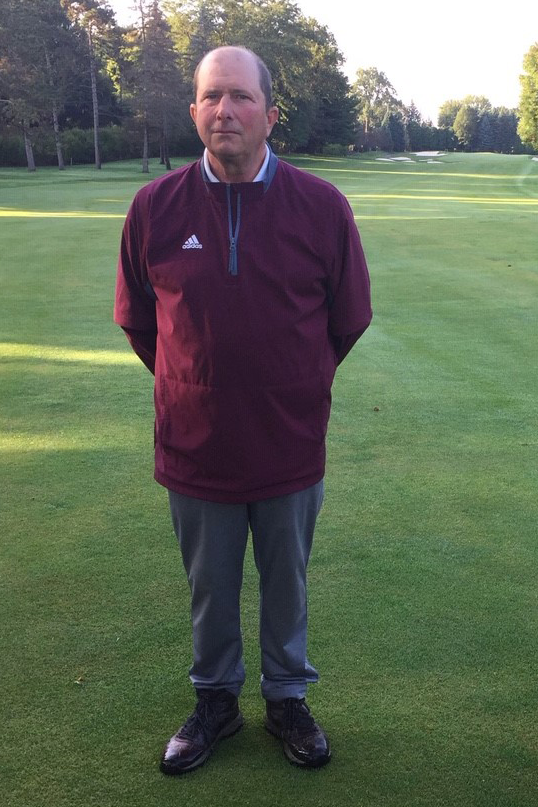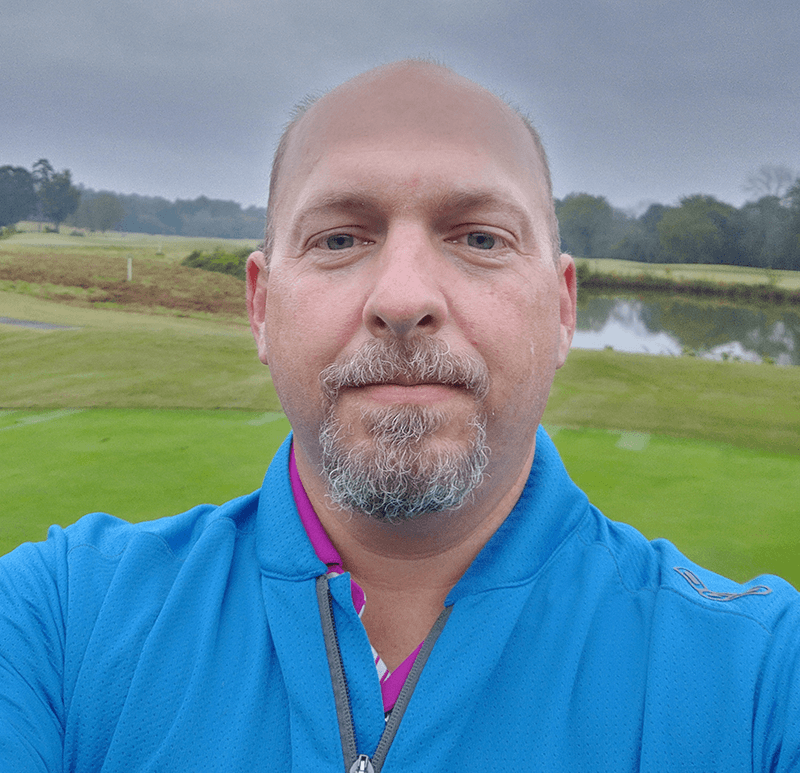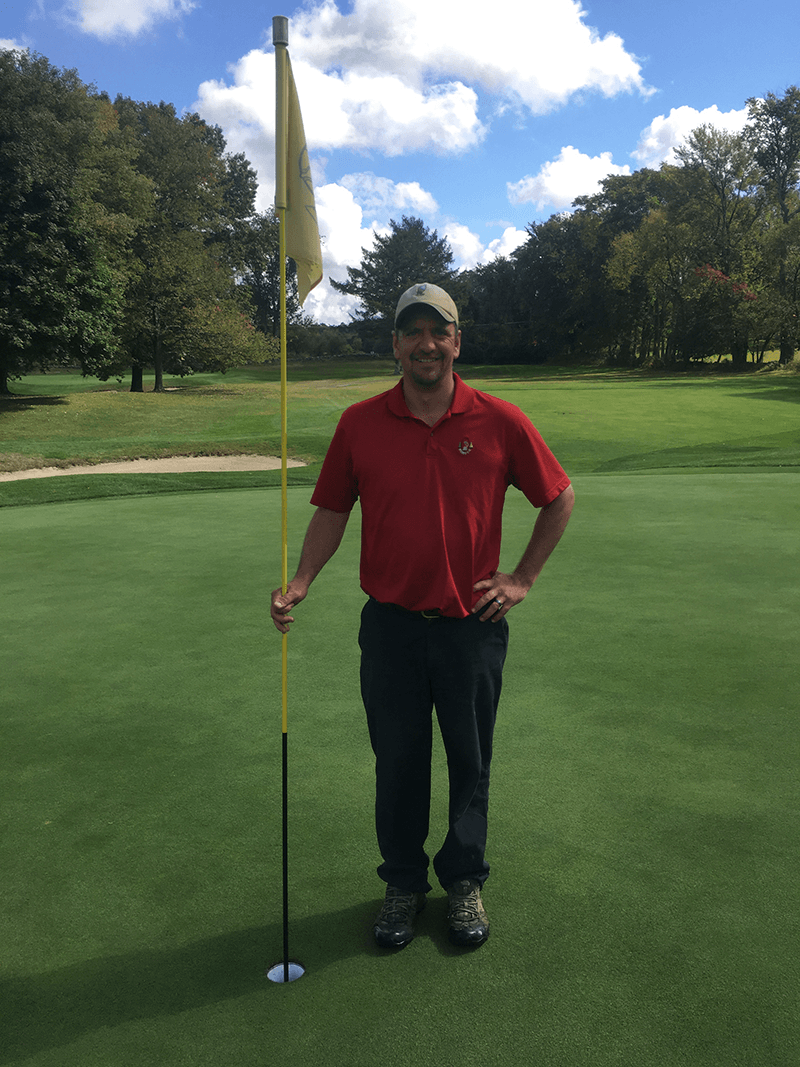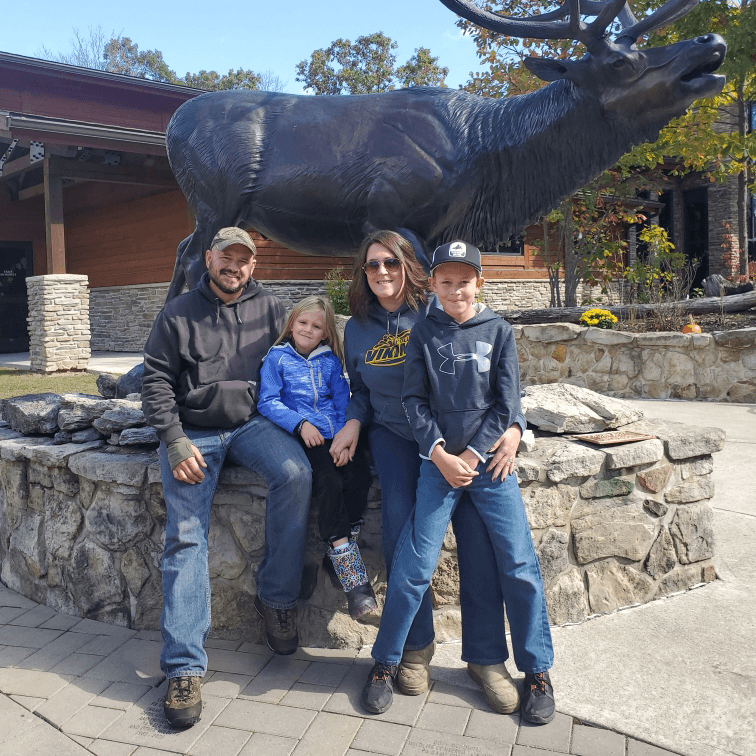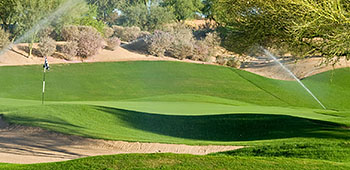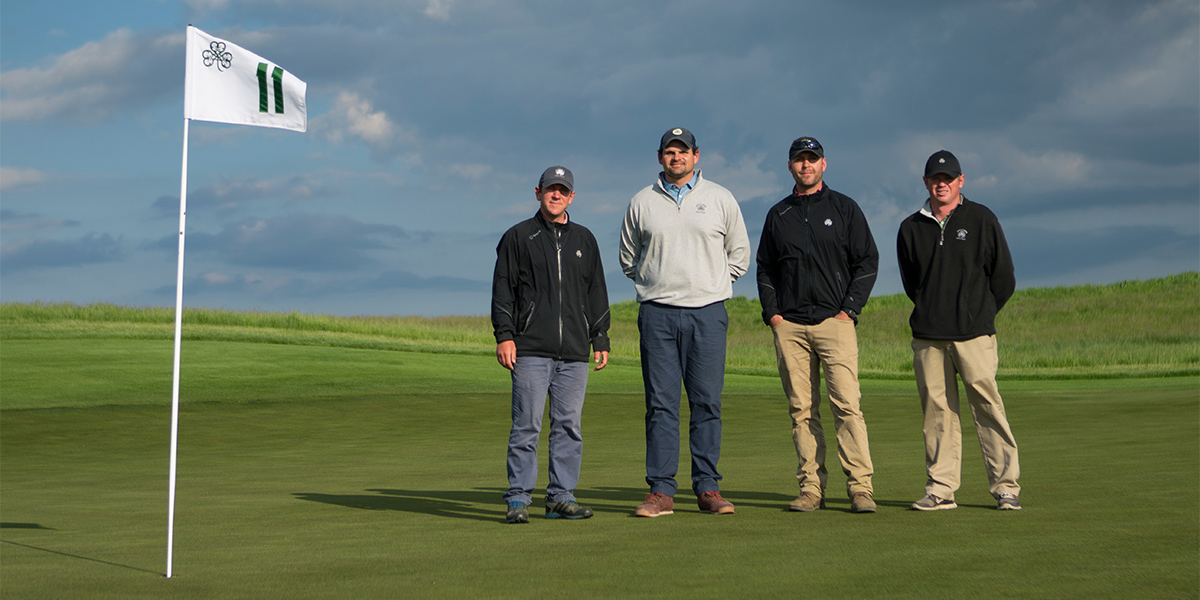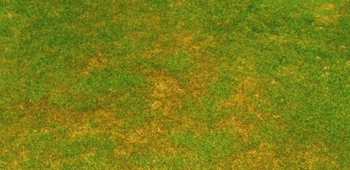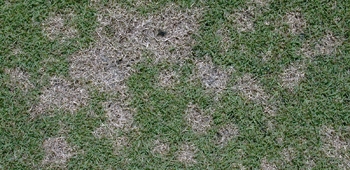The Joy of Frugality
Finding ways to outperform the budget is a hallmark of great superintendents. Here are a few insights on doing more with less from some of the best…and a surprising look at how BASF products help them do it.

by Pat Jones
One of the most common misperceptions among “civilians” -- those outside our happy little business -- is that superintendents all have vast budgets and armies of people to do their bidding.
(I’ll pause here and wait for you to stop laughing.)
But seriously, four decades in this business have taught me that many of the savviest supers are those with modest funds but oodles of creativity. They MacGyver their way through the season with tricks, hacks and crazy ideas that just happen to work. Most importantly, they know how to focus their precious resources where they matter the most.
This isn’t news to anyone who’s been around for a while. But as I was doing research for another project with BASF I ended up talking with a surprising number of very sharp supers with modest budgets who still make products like Lexicon and Maxtima core parts of their program. I say it was surprising because it seemed to fly in the face of the conventional wisdom that branded products from leading manufacturers like BASF are expensive.
So, I decided to dig into the minds of some frugal supers and find out how they’ve taught themselves to do more with less without sacrificing quality where it really matters. And how that still leaves room for the best and latest products from BASF.
A Script for Success
When I asked Bob Gegick what frugality means to him, he said: “What it doesn’t mean is being cheap or unwilling to spend money. To me what it does mean is making every dollar spent a good investment.”
Gegick, who’s been at Congress Lake CC in eastern Ohio for 13 years, has an average budget in terms of dollars but higher-than-average expectations and challenges.
For him, frugality begins with planning. “I believe in writing out your chemical and fertilizer program for the year, the month and the week. Then you don’t get sidetracked. You keep a cleaner focus. Therefore the money is spent with greater purpose.”
Gegick makes a “script” every night for the next day’s work. “I borrowed the idea from Bill Walsh of the 49ers who would script the first 15 plays his offense would run in every day. I thought that was brilliant. Walsh could mentally go through and figure out what people he wants in at each position to give him the best chance to succeed.
“So that’s how I look at it,” says Gegick. “These are my objectives, these are my players, this person is good at this stuff and this person isn’t. How can I put everyone on my crew in the best position to succeed so as the day goes on everyone feels comfortable with what they’re doing and not overwhelmed. Then when Job 1 gets done at 9 a.m., I have an idea of what’s next and who should do it. It’s all in a messy flow chart in my terrible writing that only I can read.”
“I’ve been scripting a long time. When I come in the morning I’m ready to start thinking about tomorrow. I already know what we’re doing today. I can focus on the next round of objectives. I stay nearby the work but I usually only worry about little nuances and such. And I’ve learned to not overwhelm them with a list of stuff to do. Have them do one thing then regroup based on the script.”
One of the biggest labor savings he’s achieved over the years? “I’m a big believer in the power of growth regulation. We’ll lock down our tees and fairways (with PGRs) and we can mow them once a week, maybe even two weeks, without a problem. Fairway mowing is such a time-killer. It’s 15-20 hours we don’t have to spend for the price of a few PGR apps.”
How do you get the most bang for your chemical buck?
“It’s important to me to write my own program first. Does it make sense? Are we rotating classes? Then I’ll use EOP to my best advantage. And I tend to work with multiple distributors to try to get maximum value and to keep relationships with lots of salespeople. I get a ton of good info from salespeople.”
How do you prioritize? “First thing I do is cover my spray programs. Then I get a budget and add inventory for products I know I want to use or products I really want to try and I’ll have all my bases covered.
“You make it work by learning what products are the ones you really can trust and what is important and when is the right time. You don’t get a second chance. You get one shot to use that product in the right position.”
“Bayer, Syngenta, BASF…they all have great products. We’re blessed to have such amazing tools. For me, when I figure out my rotation, the products BASF have match up phenomenally right where I need to go. They’ve proven to be wonderful for my property.”
Gegick was early to the game with Navicon last August. “I had a little summer patch breakthrough and Scott Waltz gave me some to try and I took a leap of faith. And boy it worked like a freaking charm. I was hooked!
He likes Maxtima for lots of reasons but the class 3 FRAC code “fits into my program perfectly,” he says. “Velista has been a really good strong performer for us. And now with Maxtima…once a month I’m putting silver bullets out there and that’s really comforting.”
Final thoughts? “First, work from the greens out. That advice is as old as turf schools. If you give golfers great greens they’ll forgive you a lot of other sins and keep coming back. Second, don’t cut corners. It may take longer to get where you want to go but never cut a corner. Finally, figure out what products give you most bang for the buck and stick with ‘em. If they’re the right products you’ll figure out a way to afford them.”
Dead Greens Are Not and Option
Martin McMillan says with a laugh that his dad was an farm extension agent and he “tried hard to avoid following him into a career in ag but failed.” Remarkable, he ended up as a head superintendent at the ripe old age of 19 and he’s never looked back.
Today the North Carolina native faces the challenge of maintaining a Nicklaus designed public facility – Salem Glen G&CC near Winston-Salem – on a not-so-Nicklaus budget.
What does it mean to him to be frugal? “The idea of frugality is interesting because part of me just assumes that everyone does this stuff. For me, it’s maximizing not only your capabilities but your people. I come from a generation that did more with manpower than horsepower. So when you talk about frugality and you’re doing the most with the least you can, your people have to do it.”
So how does he offset labor costs? “One thing I believe in is working with a lot of part-timers. We have a skeleton staff of three full-time guys but I work more guys from 6 a.m. to lunch than I do the rest of the day. We’re out in front of play, getting our work done and being more efficient. Honestly, I can pay them more per hour because they don’t work as many hours. It’s better for my budget to have four part-timers than two more full-timers.”
Spreading tasks out is another time-honored way to reduce costs. Years ago at another club, McMillan only had one fairway mower and it took 9 hours to cut fairways in a day. That wasn’t efficient. “We started using PGRs and then started mowing 2-9 and 17 on Mondays and Thursdays and mow 1 and rest of the back on Tuesdays and Fridays. We went from 9.5 labor hours down to 6.”
He also went to chemical edging for bunkers. “I used to love that clean TV look and we edged a lot. Now we do it twice a year mechanically and the rest is liquid edge. Does it look a little rougher? Yeah but I actually kind of like that look. It’s more natural.”
Like others, he makes the most of EOP: “We do a lot with early order. Just the percentage off is free money for the year. You’re saving 6-10 percent depending on how much you’re buying. That’s free money to us. I’ll break down the major diseases for the summer, what I plan to spray, rotation and frequency. Then I look at the best products to get the most return for the money.”
So where does he choose to spend resources? “We’re growing bent in the transition zone so our money-maker is if our greens are alive. Dead greens are not an option. We have to protect them with the proper chemistry.”
What’s your program? “Segway is a big product here but I rotate that with Lexicon and Honor that cover so many more diseases…I find a lot of value in the broad-spectrum control. I get a lot of bang for my buck with them because of low rates, good coverage and great rotation fit. I also do two applications of Trinity in March, and I’m covered for fairy ring. Every year I’ve done that I’ve had zero fairy ring. It’s amazing.”
So how does he reconcile using “expensive” branded products? “I trust my experience. I was spending more money to buy the cheaper products. I find that the agency products we’re talking about are actually more cost-effective in the long run.”
Call Him Cautious
New York super Mike Aube prides himself on making lemonade out of other people’s lemons. Or at least repurposing things from other facilities when they’re done with them.
Is being frugal a compliment or put-down for you? “Frugal is synonymous with cheap so it’s still kind of a dirty word. Let’s just say I’m cautious about spending. I’m that way personally and professionally. I’ve always looked to extend what I have to get the most bang for my buck.
Aube started his career at a 9-hole, small town course with an ancient irrigation system and owner he remembers as “cheap – not frugal – cheap” but teachable. “I actually learned how to manipulate his cheapness to produce the best product.” He moved on to courses in monied Westchester County and learned about the other side of the coin. “It was the cream of the crop and lots of courses with unlimited budgets and such and I saw how much money they’re wasting. The takeaway for me was ‘let’s slow down and look at all this stuff before we throw money at it.’”
So now, with severely limited labor (Aube plus right plus three others for 18 holes on 170 acres) he needs to be creative.
“When I first got here they had these old impact sprinklers. We weren’t getting good coverage. I reached out to my former superintendent in Westchester who was doing an irrigation reno and all the old sprinkler heads were coming out of the ground. He sent me a couple hundred!”
He proudly does the same thing with flagsticks and rakes. “Hand-me-downs are great. The incremental savings from repurposing stuff from other courses has allowed us to afford to buy more important stuff.”
How does he find ideas for saving money? “Picking other people’s brains! I’m on the board of the Hudson Valley chapter and I’ve gotten to know a lot of other supers who help me solve problems, fix stuff and are occasionally kind enough to loan us a piece of equipment. I’m not beyond renting something too.”
Who else do you turn to? “I try to build very good relationships with vendors. They are people I can trust. There might be 10 vendors selling in our area and I have whittled it down to three that I really work with. They tend to have good, consistent pricing. Again, it’s all about trust and them bringing expertise and ideas to me.”
He estimates that nearly a quarter of his $350,000 maintenance budget goes to chemicals and fertilizer.
“My priority is keeping the greens healthy. The BASF products are my go-to on greens. That’s the bread and butter. That’s what I want them to remember when they leave…great greens.”
What’s his key product? “My favorite is Lexicon. It’s broad-spectrum and long-lasting. I’m always doing my greens every two weeks because I don’t want to be caught with my pants down.”
What did you think when they lowered the price of Lexicon, Xzemplar and Emerald? “Absolutely great. Any price drop is meaningful and I’m going to jump on it. I’ve found that BASF products are reliable and knowing that I have that product on the greens, I can relax a little bit. Because it’s so broad spectrum, I don’t have to worry about little secondary problems. I’ve got plenty of other things to worry about but the greens will be solid.”
We Get It Done
Brian Anderson really didn’t seem to mind when I called him cheap: “I’m actually kind of proud of that. I have a strong work ethic, which is something my parents and grandparents instilled in me. I’m not afraid to get after it. And I’ve MacGyver’ed a lot of good stuff in my day.”
Anderson cares for Cloverleaf GC in Delmont, Penn. It’s 27 holes across 160 acres and most of the work is done by him and the three sons of the original owner who built the place in 1954. “They work with me every day. Two help with mowing and one’s a mechanic.”
He grew up about two miles from the course he’s at today and worked there as a teenager. He briefly went to college at West Virginia, majored in partying and, at his father’s suggestion, decided to take a second look at a career in golf. He learned the ropes at a couple of other courses and came back to Cloverleaf as super in 2012. Take my word when I say he has a modest budget.
What are some of those “better ways to do it” he’s found over the years? “We do everything in-house so we have no choice but to figure things out. One of the craftiest things we did recently was to redo some dilapidated putting green pins with new sticks we found in the attic. Why on earth would we spend money on new putting green flags?”
So where does the labor effort go when you’re operating with little capital? “We do all of our reels…and we still use gang mowers. We end up sharpening close to 75 reels every year. We have an outstanding equipment maintenance program that’s mostly done by one of our owners, which is pretty unique.”
Anderson does his own tree work and, thanks to a prized wood chipper, that means free mulch for flower beds and such. “It’s not pretty colored and dyed but it’s nice mulch for flower beds. Little stuff matters.”
What does Anderson do to put your best foot forward for golfers? “Every day I’m on the greens. I make sure they are acceptable for public play. They’re not screaming 11 or 12 on the stimp but they’re a good 9.5. All cup locations are friendly. The goose poop is cleaned up. And aesthetically they are very pleasing. People walk on them and say ‘wow.’”
So how does he do that with extremely limited funds? “Anywhere in western Pa, the biggest thing we battle is dollar spot. We just seemed to be stuck with the in the same boat – year after year, the same products with the same mode of action. My local rep suggested I try Xzemplar. I did a half and half comparison on a green that already had some damage. I was astonished by how Xzemplar healed what damage was already out there then kept preventing more. I was happy as all get out.”
“Now, for me, I can totally justify spending that money on Xzemplar for three months out of the summer because then I know I don’t have to worry about it. That makes me pretty damned happy,” says Anderson. “There’s a sense of security that goes along with it. And my owners know and understand that greens are the most valuable thing we have and they’re why we have golf you can justify spending that money on those putting surfaces.”
Final thoughts on frugality? “We find a way to get it done. It might not be pretty or perfect but we get it done and golf goes on.”
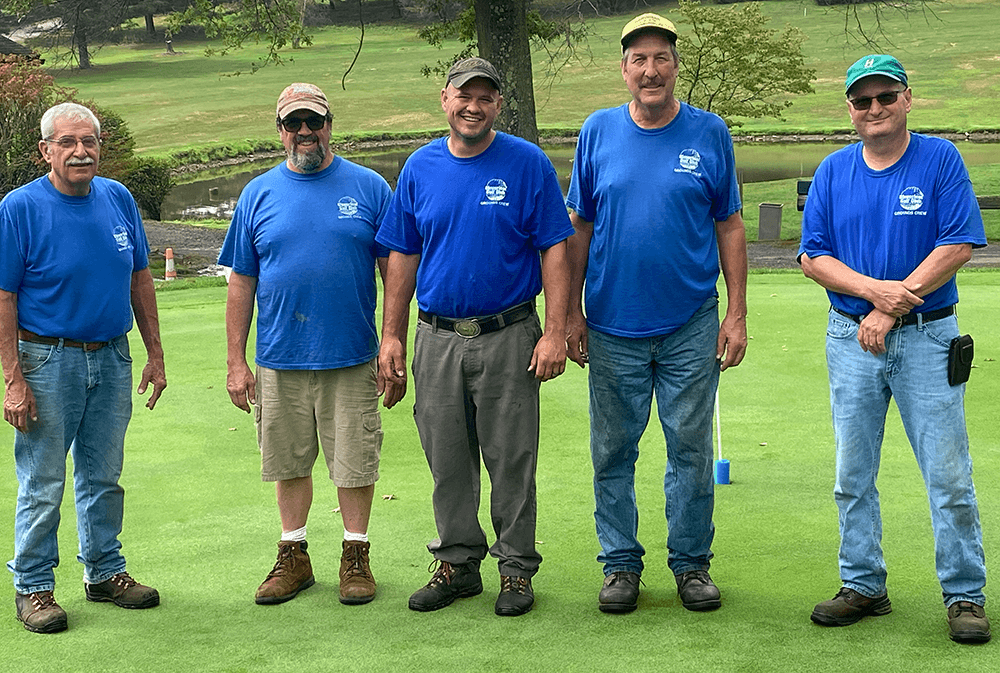
Figure Out a Way
When I called Mike Paluzzi of New Jersey’s Crystal Springs Golf Resort and asked if he was a skinflint, he replied:
“Let’s just say I’m resourceful. I try to think outside the box to utilize things in a different way, repurpose stuff or further the life of equipment or something we have around. It’s all about bang for the buck.”
For example, most of his fleet of utility vehicles used by his staff are converted old beverage carts. “The boxes for drinks and food fall apart but the cart is still okay so we use them for years. Capital isn’t easy to come by so you gotta do with what you have.”
Paluzzi also MacGyvered a solution to a major irrigation problem using a solar-panel inverter system, a 12-volt, deep-cycle battery and a Rain Bird satellite to figure out a way to get power (portably) to his busted irrigation system. He tried to explain it to me for 20 minutes but gave up because it was miles over my head. “Let’s just say It gives me satisfaction to solve problems like that. It’s nonconventional but you make it work.”
Like others, he’s a big believer in keeping equipment forever, so he’s become the mechanic of last resort: “I have my own tools and I fix stuff that others may not have time to and try to bring dead equipment back to life. I’d rather do that than tax my mechanic on something that might not pan out.”
How about in-house work? “All of our tee markers are from Cedar trees onsite that we cut up and paint ourselves. I’m also trying to figure out how to rig something to hold one bunker rake on each cart so we don’t have to put them back on the course.”
Here’s an idea that saved him about $20K a year: “We used to order in the green dyed divot sand. But the mix was always wrong and it was expensive. My friend had an old cement mixer and I grabbed it, got the motor working and we started to make our own divot mix. We gave the guys a recipe with sand and seed and by golly it worked better. We got into recycling plugs from greens and we’d chop ‘em up with an old chipper-shredder to break up the plugs. Eventually we ended up buying an old topsoil screener we use to this day. So every two weeks we make a new batch of our very own divot mix.”
Paluzzi is part of a small group of courses that share some ownership and equipment. “All of our aeration equipment is shared as well as tractors, vacs, verticutters and other big stuff. The downside is the equipment ages faster being used across 90 holes so you do have to replace units more often. Also, everyone tends to want them at the same time for aerification. Other than that, it’s great.”
How do you maximize the impact of your spend in this cost-conscious environment? “I’ve been with this company for 22 years but I worked at private clubs before. It took a couple of years to learn what focus down the center line meant and to adjust how I reacted to some of the little things I would have fixed before. I try to be content by being more resourceful because I know I can’t do it all. I get satisfaction from doing things a little differently and doing the best with what I have.”
Related

